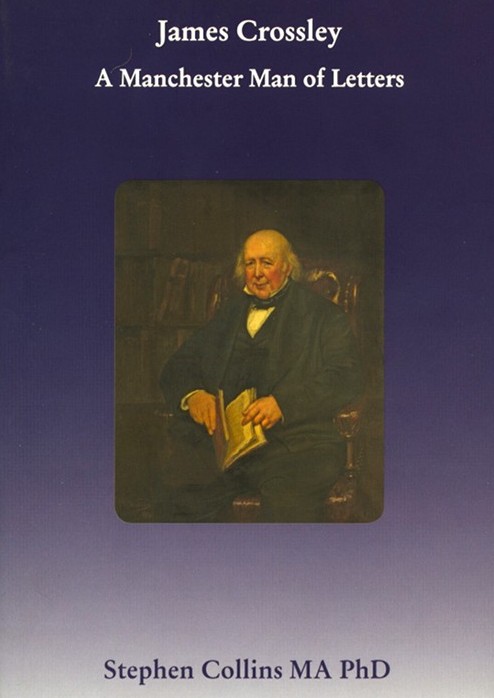Monday 25 February 2013
Chetham's Library
The wonderful Library founded by Humphrey Chetham in 1653, hidden in the heart of Manchester, has a blog featuring 101 of its many treasures. One of these is James Crossley, with a brief description of his life and some interesting illustrations. The link below will take you to this page, and from there you can go to the Library's home page and find out about all the delights that this amazing building has to offer.
www.chethams.org.uk/treasures/treasures_crossley.html
Sunday 24 February 2013
Introducing James Crossley
Although James Crossley was a large figure in every sense, he has escaped the notice of many historians because he held no high political office, nor attracted much national attention. Yet he played a major role in the cultural development of Manchester, a city of huge importance in the nineteenth century. His unparalleled knowledge of literature and his extensive collection of books and manuscripts established his reputation in bibliographic circles, but he was also acquainted with most of the major literary figures of the time, and in the case of the popular novelist William Harrison Ainsworth, a lifelong friendship which extended to creative collaboration, with Crossley providing the source material for many of Ainsworth’s most successful works. He played host to Charles Dickens and other literary visitors, and helped to organise literary soirées at the Athenaeum Club for the edification of the well-heeled population of Manchester. More importantly, Crossley played a vital part in the great Victorian civic enterprise that was the Manchester Free Public Library in 1852, helping to select and purchase the initial book stock.
The nineteenth century has been characterised as a ‘full-blooded dining age’ and a continuous programme of dinners and social events facilitated the maintenance of a network of individuals with common backgrounds and interests. These men (this social framework was exclusively male) were all in positions of influence, being largely drawn from the ranks of the law, medicine, banking and the clergy. It was at such a gathering, which took place at Crossley’s house in 1843, that the notion of a society to publish ‘remains historical and literary connected with the palatine counties of Lancaster and Chester’, and thus preserve the cultural heritage of the region, was conceived. This was of course the Chetham Society, which, for the larger part of his lifetime and beyond, Crossley’s name was associated, having been the Society’s president for forty years.
In Crossley, then, we have a man who exerted considerable influence in various important areas of nineteenth-century urban life, but who was generally content to remain in the background. Consequently he has been overlooked in the larger historical picture, surfacing here and there as a footnote. It is the intention of this blog to highlight the achievements of this extraordinary man, and to emphasise his important part he played in establishing a literary and historical culture in the Manchester region.
Subscribe to:
Posts (Atom)
